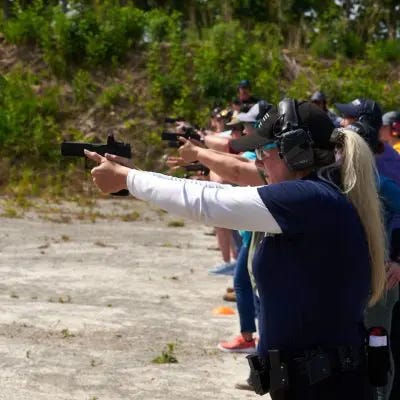Empowering Women to Overcome Fear and Rebuild Confidence: Trauma Recovery and Self-Defense

For many women who have experienced trauma, the path to recovery can feel long and overwhelming. Whether the trauma is from assault, violence, or other life-altering experiences, it often leaves a profound impact on confidence, security, and mental well-being. However, one powerful tool in this journey of healing is self-defense training. Learning self-defense techniques goes beyond physical protection, it helps rebuild mental resilience, rebuild confidence, and empower women to take back control of their safety and well-being.
The Connection Between Trauma and Fear:
Trauma often manifests in feelings of fear, anxiety, and vulnerability. For those who have survived traumatic experiences, it can be challenging to regain a sense of control over their lives. Fear of re-experiencing the trauma or of encountering a similar threat can lead to hypervigilance, social withdrawal, and avoidance behaviors. This cycle of fear can feel paralyzing.
Self-defense training offers a unique way to break that cycle and overcome fear and rebuild confidence. By learning techniques that emphasize control and assertiveness, women can reduce feelings of helplessness. Self-defense classes teach not just how to react in dangerous situations, but also how to carry oneself with confidence, reducing the fear that comes with potential threats.
How Self-Defense Supports Trauma Recovery:
- Regaining Control and Empowerment:
One of the first steps in trauma recovery is regaining a sense of control. Self-defense training allows women to actively participate in their own safety. By practicing skills and scenarios, women can develop a sense of mastery over their environment and personal security. This not only counters feelings of vulnerability but also restores the feeling that one can control what happens next. - Building Confidence:
Trauma often leaves women questioning their worth and capabilities. Self-defense is an empowering practice that can drastically improve self-esteem. As women learn and master new skills, whether it’s escaping a hold or learning to strike with precision, they gain confidence in their ability to protect themselves. This sense of competence can spill over into other aspects of life, from professional success to personal relationships. - Mental Resilience and Focus:
Trauma recovery isn’t just about physical healing but mental resilience. Self-defense training teaches discipline, focus, and resilience. These qualities are developed as students push through physical and mental barriers, learning to stay calm under pressure and think critically in stressful situations. The ability to focus and react under pressure is not just useful in self-defense but can aid in navigating the emotional challenges that come with trauma recovery. - Community and Support:
Many self-defense classes foster a sense of camaraderie and support. For women recovering from trauma, being part of a community of like-minded individuals can be incredibly healing. The bond formed during training, where participants learn, fail, and grow together, helps create a supportive environment that promotes healing. This community aspect can be especially powerful for women who may feel isolated in their trauma recovery.

The Role of Self-Defense in Preventing Future Trauma:
Prevention is another powerful aspect of self-defense training. While no one can predict when a dangerous situation will arise, being prepared helps reduce anxiety about the unknown. Knowing that you have the tools and training to protect yourself can significantly alleviate the fear of being targeted again. Moreover, self-defense training acts as a deterrent to potential attackers. Perpetrators are less likely to target someone who appears confident and capable of defending themselves.
Conclusion:
Self-defense is more than a skill, it’s a tool for trauma recovery. It empowers women to face their fears, rebuild their confidence, and regain control of their lives. By integrating self-defense into the healing process, women not only protect their bodies but also strengthen their minds and spirits. As women learn to stand tall, embrace their power, and take control of their safety, they also take back the freedom to live without fear. Self-defense can be the stepping stone toward a stronger, more resilient future.
If you or someone you know has experienced sexual harassment, assault, or violence, help is available. Here are some trusted organizations that offer support and resources:
National Sexual Assault Hotline (RAINN)
Website: https://www.rainn.org
Hotline: 1-800-656-HOPE (4673)
Services: Offers confidential support, guidance, and connections to local resources.
The National Domestic Violence Hotline
Website: https://www.thehotline.org
Hotline: 1-800-799-SAFE (7233)
Text: Text “START” to 88788
Services: Provides support for domestic violence victims and survivors, including safety planning and access to shelters.
Crisis Text Line
Website: https://www.crisistextline.org
Text: Text “HELLO” to 741741
Services: Provides free, 24/7 support for any kind of crisis via text.






[…] of the most empowering steps in this journey is self-defense training. It’s not just about learning to defend yourself in physical situations; it’s about reclaiming […]
[…] Self-defense training isn’t just for preventing danger. It helps survivors rebuild trust in themselves, sharpen their instincts, and regain confidence. It teaches us that we are capable, prepared, and in control of our own safety. And sometimes, that feeling of control is exactly what we need to push back against the helplessness that mental illness can bring. […]